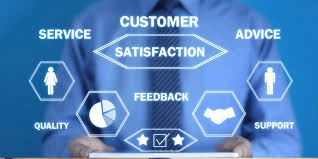
Solar Power for Businesses: Is It Worth the Investment?
We will explore how solar energy works for businesses
Topics Covered
- Introduction: Why Businesses Are Considering Solar Power
- The Financial Benefits of Solar Power for Businesses
- How Solar Power Works for Commercial Applications
- Available Government Incentives and Tax Breaks
- The Long-Term ROI of Solar Panels
- Environmental Benefits of Solar Power
- Challenges and Considerations for Installing Solar Panels
- How to Assess Whether Solar is Right for Your Business
- Conclusion: Making a Sustainable and Profitable Energy Choice
Introduction: Why Businesses Are Considering Solar Power
As the world increasingly shifts toward renewable energy, businesses are looking for sustainable solutions that not only align with environmental goals but also cut down on operating costs. Solar power has emerged as one of the most popular renewable energy options for businesses. From small startups to large enterprises, companies are exploring solar power as a way to reduce their carbon footprint while lowering electricity bills. However, the question many business owners face is whether the upfront investment in solar power is worth it. In this in-depth guide, we’ll explore how solar energy works for businesses, the financial benefits, the available incentives, and how to determine if solar energy is the right investment for your company.
The Financial Benefits of Solar Power for Businesses
One of the primary reasons businesses opt for solar power is the potential to reduce long-term energy costs. Commercial solar systems allow businesses to generate their own electricity, reducing their dependence on the grid. Over time, this leads to significant savings, particularly in regions where electricity costs are high.
Here are the main financial advantages:
- Reduced Energy Bills: Once a solar panel system is installed, businesses can generate a portion, if not all, of their electricity needs. This can lead to immediate reductions in monthly electricity bills.
- Protection Against Rising Energy Prices: With electricity prices often rising annually, solar energy allows businesses to lock in lower energy costs for the long term.
- Increased Property Value: Installing solar panels increases the value of a commercial property. Buyers are often willing to pay more for buildings with lower operational costs, making it an attractive investment for property owners.
- Potential to Sell Excess Energy: In some regions, businesses can sell excess energy back to the grid through programs such as net metering. This creates an additional revenue stream and accelerates the return on investment (ROI).
How Solar Power Works for Commercial Applications
Commercial solar systems work similarly to residential systems but on a larger scale. Solar panels, typically installed on the roof or on ground-mounted arrays, capture sunlight and convert it into direct current (DC) electricity. This electricity is then passed through an inverter, which converts it to alternating current (AC) — the type of electricity businesses use.
Most businesses install grid-tied solar systems, which means the solar energy system is connected to the local electrical grid. During peak sunlight hours, the business draws power from the solar panels. When the panels are not producing enough power (e.g., during cloudy weather or nighttime), electricity is drawn from the grid.
Key components of a commercial solar power system:
- Solar Panels: These capture sunlight and convert it into electricity.
- Inverters: Convert DC electricity into usable AC electricity.
- Battery Storage (Optional): Businesses can add battery systems to store excess energy produced during the day for use during non-sunlight hours.
Available Government Incentives and Tax Breaks
To encourage the adoption of renewable energy, many governments offer a range of financial incentives, tax credits, and grants for businesses installing solar power systems. These incentives can significantly reduce the upfront cost of installation, making solar power more affordable.
Common incentives include:
- Investment Tax Credit (ITC): In the U.S., businesses can deduct a significant percentage of the installation cost from their federal taxes through the ITC. In 2024, the ITC stands at 30%, offering substantial savings.
- Accelerated Depreciation (MACRS): Businesses can accelerate the depreciation of solar energy equipment, providing a way to recover the investment more quickly.
- Grants and Rebates: Many regions offer grants or rebates for businesses investing in solar energy, further reducing the cost.
- State and Local Incentives: Depending on your location, additional state and local incentives may be available, such as net metering programs, which allow you to sell excess electricity back to the grid.
The Long-Term ROI of Solar Panels
Solar power systems are a long-term investment. Although the upfront costs can be significant, most businesses see a positive return on investment (ROI) within 6-10 years, depending on factors such as local energy prices, available incentives, and the size of the solar installation.
Key factors influencing ROI:
- Cost of Installation: The initial cost of purchasing and installing solar panels is the biggest factor affecting ROI. The cost of solar equipment has dropped dramatically in recent years, making the payback period shorter.
- Energy Savings: The more energy your business consumes, the greater the potential savings. High-energy users, such as manufacturers or data centers, often see quicker payback periods.
- Available Incentives: Government incentives, tax breaks, and rebates can significantly reduce the time it takes to recoup your investment.
Environmental Benefits of Solar Power
While financial savings are a primary motivator, the environmental benefits of solar power are equally compelling. Solar energy is clean and renewable, meaning it doesn’t emit harmful greenhouse gases or pollutants into the atmosphere.
Environmental benefits include:
- Reduced Carbon Footprint: By generating clean energy, businesses can significantly reduce their carbon emissions, contributing to global efforts to combat climate change.
- Sustainability Goals: Many businesses have set internal sustainability targets or are looking to improve their corporate social responsibility (CSR). Solar power can help businesses meet these goals while improving their brand image.
- Green Certifications: Installing solar panels can help businesses qualify for LEED (Leadership in Energy and Environmental Design) certifications, demonstrating a commitment to sustainability.
Challenges and Considerations for Installing Solar Panels
While solar power presents numerous benefits, there are challenges that businesses need to consider before investing:
- Upfront Costs: The initial investment required to install solar panels can be high, depending on the size of the system and the location.
- Space Requirements: Not all businesses have enough roof or ground space to accommodate a commercial solar system. Solar installations require large, unobstructed areas for maximum efficiency.
- Weather Dependency: Solar energy production is dependent on sunlight, meaning businesses in regions with frequent cloud cover or less sunlight may not generate as much power as those in sunnier climates.
- Maintenance: Although solar panels require relatively little maintenance, businesses must account for occasional cleaning, monitoring, and potential inverter replacements over the system’s 25-30 year lifespan.
How to Assess Whether Solar is Right for Your Business
When deciding whether to invest in solar power, consider the following factors:
- Energy Consumption: Businesses with high energy usage will benefit most from solar energy systems. If your electricity bills are substantial, solar could result in significant savings.
- Location and Sunlight Availability: Regions with ample sunlight will produce more energy and lead to faster ROI. Conduct a solar feasibility study to determine how much energy your business can generate.
- Financial Position: Consider the upfront cost of installing a solar system. While financing options such as Power Purchase Agreements (PPAs) or solar leases are available, having access to capital will speed up the installation process and ROI.
- Long-Term Goals: Align your solar investment with your long-term business goals, such as sustainability targets or reducing dependency on fossil fuels.
Conclusion: Making a Sustainable and Profitable Energy Choice
Solar power offers businesses an opportunity to significantly reduce their energy costs while contributing to environmental sustainability. With available incentives, falling equipment prices, and growing corporate responsibility for green energy, solar power is an investment worth considering for businesses of all sizes. However, it’s essential to carefully evaluate your energy needs, location, and financial capabilities to ensure that solar is the right fit for your organization.
Insight from UtilityKing
At UtilityKing, we guide businesses through every step of their solar energy journey, from assessing energy needs to installation and maintenance. Solar power not only helps businesses save money but also enhances their sustainability profile. Whether you're a small business or a large corporation, UtilityKing is here to help you make the best energy investment decision.

